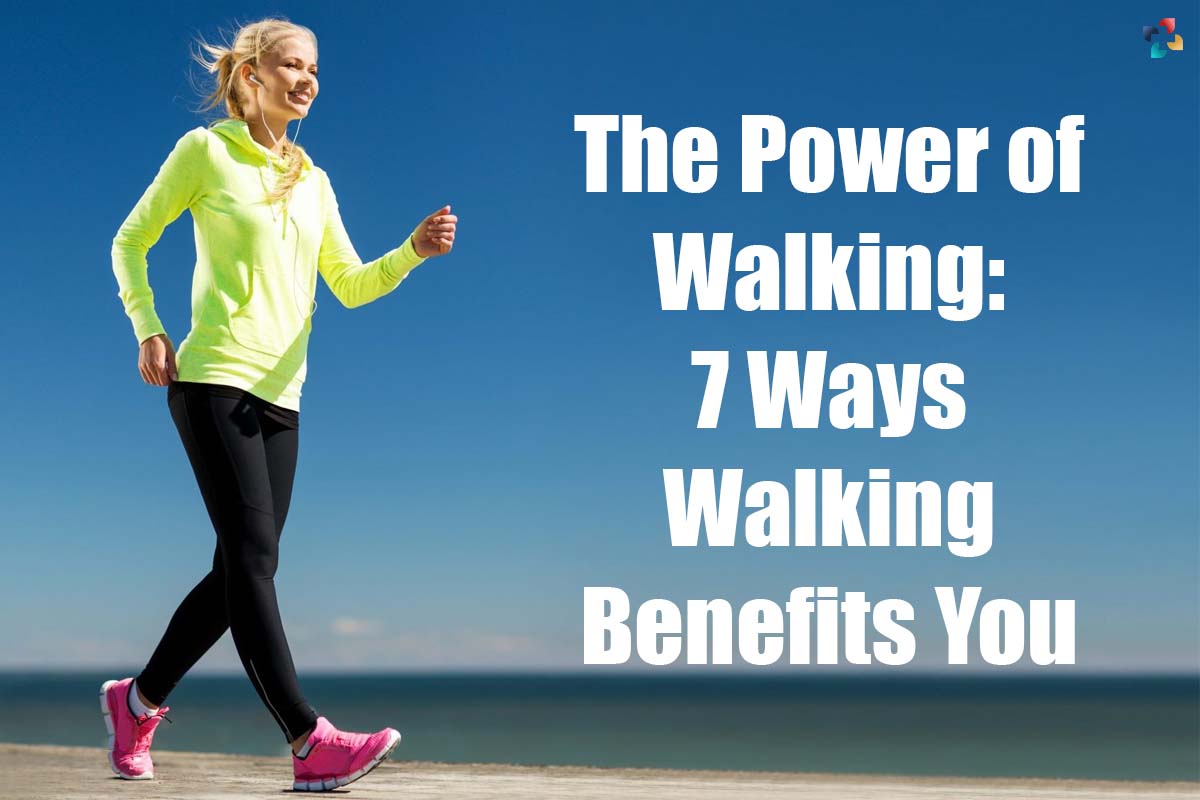People of all ages and levels of fitness may reap the advantages of the Power of Walking for their health in a variety of ways. Also, it may assist in the prevention of some illnesses and perhaps help you live longer.
Walking is an activity that doesn’t cost anything and is simple to include in your regular routine. To get started with Best Walking Benefits, all you need is a good pair of walking shoes that are supportive.
Here are the 7 Best Walking Benefits You: Power of Walking;
1. Burn calories
Walking is a powerful activity that can have a significant impact on your overall health and well-being. Incorporating walking into your daily routine may help you burn off some calories, which can be beneficial for weight loss. In fact, the power of walking lies in its ability to increase your caloric expenditure while also reducing your food intake.
The number of calories you really burn is determined by a number of variables, including the following:
- walking distance walked per hour walking pace walking terrain (you will burn more calories walking uphill than you would be walking on a level surface)
- your weight
Using a calorie calculator can allow you to ascertain the number of calories that you really burn. You may also use this chart for a rough estimation of the total cost.
2. Tone your legs
Walking is a great way to build up strength in your leg muscles. Walking up hills or using a treadmill that has an inclination is an excellent way to build up your strength. Instead, locate routes that include stairs.

Alternate walking with other forms of cardio, such as cycling or running, to maximize the Best Walking Benefits of cross-training. You may further tone and develop your leg muscles by doing resistance exercises such as squats, lunges, and leg curls. These exercises can be found here.
So why not give it a try? Put on a comfortable pair of shoes, grab a friend, and take a stroll around your neighborhood. Remember, every step counts! Embrace the Power of Walking today.
3. May assist in bringing your blood sugar levels down
After a meal, going for a little stroll may help reduce the amount of sugar in your blood.
One study indicated that having a 15-minute walk after each meal (breakfast, lunch, and dinner) improved blood sugar levels more than taking a 45-minute walk at another point in the day. The research was conducted on a modest scale.
Nevertheless, further investigation is required to substantiate these conclusions.
Think about making going for a stroll after each meal a regular part of your schedule. Also, it might make it easier for you to include physical activity in your day.
4. Eases joint discomfort
The joints, notably the knees, and hips, may benefit from the protection provided by walking. This is due to the fact that it assists in lubricating and strengthening the muscles that support and surround the joints.

Those who suffer from arthritis may find that walking offers additional advantages, including a reduction in discomfort. In addition, walking between five and six miles each week has been shown to reduce the risk of developing arthritis.
5. Boosts immunological function
It’s possible that going for walks might lower your chances of catching a cold or the flu.
The research followed one thousand people throughout the flu season. Individuals who walked at a moderate speed for 30 to 45 minutes per day had generally fewer upper respiratory tract infections and 43 percent fewer ill days than those who did not exercise at this pace.
If they did get ill, though, they had fewer severe symptoms. This was in contrast to the people who participated in the research who had a sedentary lifestyle.
If you want to enjoy these advantages, you should make walking a regular priority. You may try walking on a treadmill or around an indoor mall if you live in a chilly region. Both of these environments are heated.
6. Increase your energy
If you’re feeling fatigued, getting some fresh air and exercise could give you a better burst of energy than a cup of coffee would.
Walking improves the circulation of oxygen throughout the body. Moreover, it has the potential to raise one’s cortisol, epinephrine, and norepinephrine levels. These are the hormones that contribute to increased levels of energy.
7. Raise your mental state
The Power of Walking is good for both your physical and emotional well-being. According to research, it has been shown to be effective in lowering levels of anxiety, despair, and bad mood. Also, it may improve one’s self-esteem and lessen the symptoms of social isolation.

Walking at a brisk pace for half an hour or participating in another kind of exercise with moderate intensity should be your goal three times a week. You may also divide it up into three walks that are each 10 minutes long.






